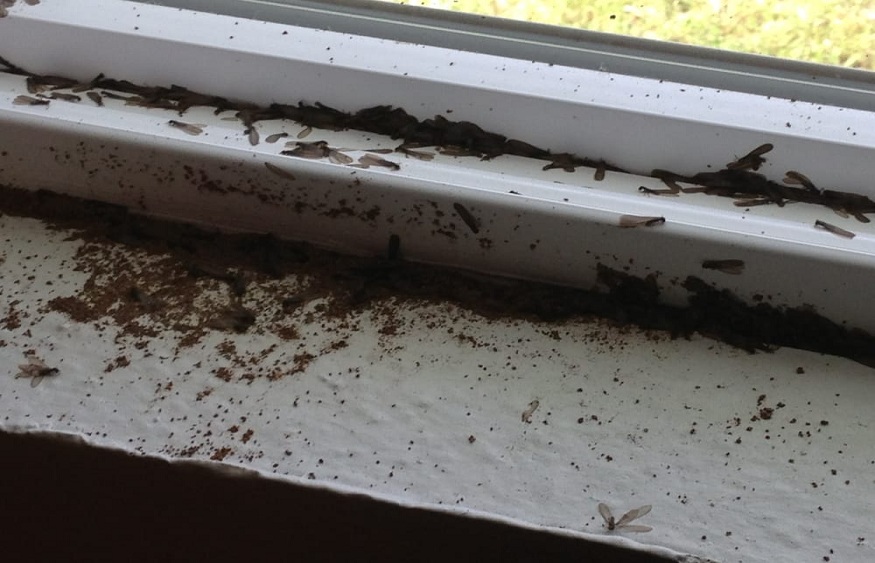Welcome to our blog! Today, we’re diving into a topic that might not be on everyone’s radar when it comes to home insurance – pests. Yes, those pesky critters that invade our homes and cause all sorts of headaches. But did you know that these little intruders can actually have an impact on your home insurance premiums? That’s right! In this article, we’ll explore the connection between pests and insurance rates, whether or not your policy covers pest damage, and how you can prevent infestations to maintain lower premiums. So grab a cup of coffee and join us as we uncover the hidden world of pests in relation to your home insurance. It’s going to be buzz-worthy!
How Pests Can Affect Your Home Insurance Premiums?
There are many factors that can influence the cost of home insurance premiums. One surprising factor that you might not have considered is pests. Yes, those unwelcome visitors can actually impact how much you pay for your coverage.
Let’s talk about the damage that pests can cause. From termites devouring your wooden structures to rodents chewing through electrical wires, these critters can wreak havoc on your home. And guess what? Insurance companies don’t take too kindly to this kind of damage. If insurers see a history of pest-related claims or signs of an ongoing infestation, they may consider your property as high risk and adjust your premiums accordingly.
Furthermore, pests bring with them a heightened risk of other perils, such as fire or water damage. For example, rodents gnawing at electrical wires could lead to short circuits and potentially spark a fire. Similarly, if pests invade your plumbing system or cause leaks in pipes, this could result in costly water damage repairs. Insurance providers take these risks into account when determining the level of coverage needed for properties prone to infestations.
Which Pest Infestations Can Affect Home Insurance Premiums?
Now that we have explored how pests can impact your home insurance premiums let’s take a look at the specific pest infestations that insurers may consider when determining your rates. Keep in mind that this list is not exhaustive, and policies may vary between insurance providers.
- Termites: These tiny insects can cause extensive damage to the structure of your home, leading to costly repairs. Insurers often view termite infestations as a red flag and may increase your premiums accordingly.
- Bed bugs: Although bed bugs are more of a nuisance than a structural threat, they can still affect your insurance rates. Some insurers may consider bed bug infestations as an indication of poor housekeeping or unsanitary living conditions, which could lead to higher premiums.
- Rodents: Rats and mice can chew through electrical wiring, insulation, and even wooden structures in your home. This poses both safety hazards and the potential for significant property damage. Insurance companies may raise your premiums if you have had rodent infestations in the past.
- Bees or wasps: While bees play an important role in our ecosystem, their presence near residential areas can be dangerous for those with allergies to their stings or sensitivities. If you’ve experienced bee or wasp infestations on your property before, it might impact your home insurance costs.
It is worth noting that some insurers offer specialized coverage options specifically tailored to address certain pest-related damages beyond what traditional homeowners’ policies typically cover.
Preventing Pest Infestations to Maintain Lower Insurance Premiums
Pest infestations can cause significant damage to your home, not to mention the potential health risks they pose. And while you may think that your home insurance will cover these damages, it’s important to note that most policies exclude pest-related issues. This means that if you want to protect yourself financially from the expenses associated with pest control and repairs, prevention is key.
First and foremost, maintaining a clean and clutter-free environment is crucial in deterring pests. Regularly cleaning your living spaces, sealing any cracks or openings where pests could enter, and properly storing food can go a long way in preventing infestations.
Another effective preventive measure is regular inspections of your property. By checking for signs of pest activity, such as droppings or chewed wires, you can catch an infestation early on before it becomes a major issue. If necessary, consider hiring professional pest control services who are trained in identifying potential vulnerabilities and implementing appropriate treatments.
By taking these proactive steps to prevent pest infestations in your home, not only will you save yourself from dealing with the hassles of an invasion but also potentially maintain lower insurance premiums. Insurers view homes with fewer risks as more desirable policyholders and often reward responsible homeowners with lower rates.
The Importance of Pest Control Insurance
Pest infestations can wreak havoc on our homes, causing damage that can be costly to repair. From termites chewing through the foundation to rodents gnawing on electrical wires, these tiny invaders can cause extensive harm. This is where pest control insurance comes into play.
Having a comprehensive home insurance policy is essential for protecting your property and belongings from unexpected events. However, it’s important to note that most standard home insurance policies do not cover damages caused by pests. That’s why investing in pest control insurance is crucial.
Pest control insurance provides coverage for the costs associated with removing pests from your home and repairing any damages they may have caused. Whether you’re dealing with a termite infestation or battling against bed bugs, having this type of coverage ensures that you won’t be left shouldering the financial burden alone.
Furthermore, many pest control insurance policies also offer additional benefits such as preventative treatments and inspections. These services help detect potential issues before they escalate into full-blown infestations, saving you both time and money in the long run.
By investing in pest control insurance, homeowners gain peace of mind knowing that they are protected against the unpredictable nature of pest invasions. It allows them to focus on enjoying their homes rather than worrying about potential damage or expenses associated with combating pests.

